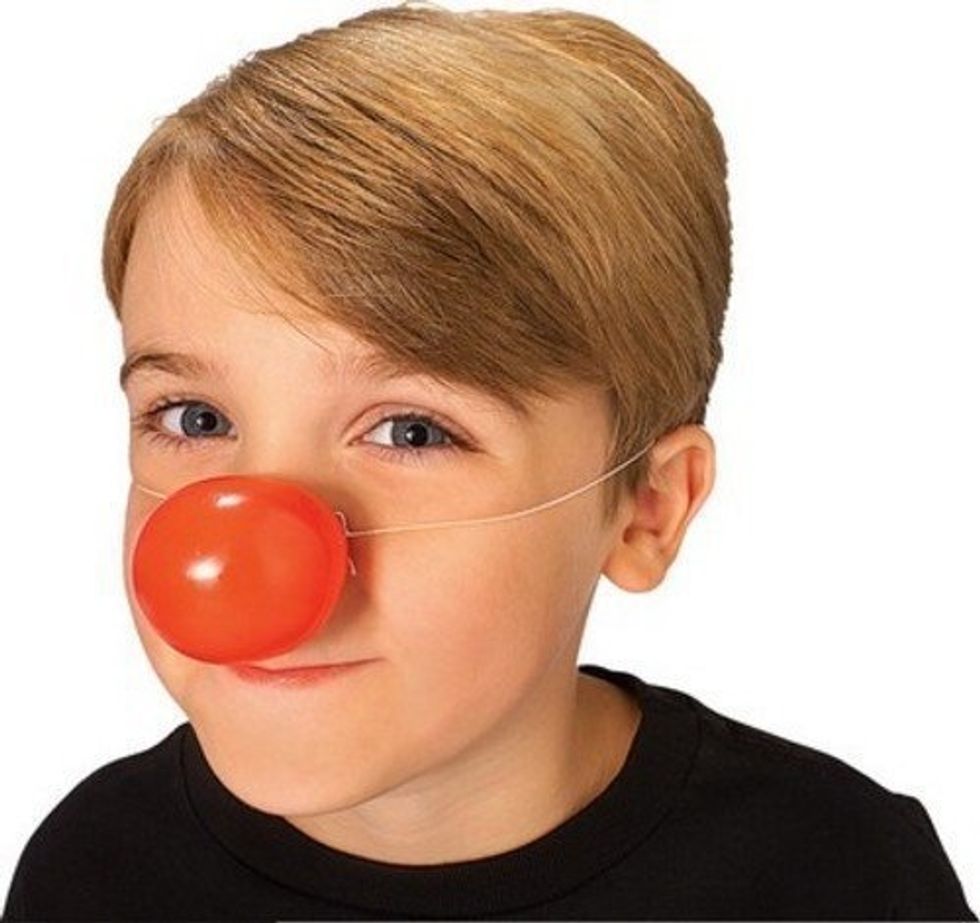You can feel it before you even wake up. Your nose is stuffy, your knees are weak and your eyes are heavy. [Mom's spaghetti.] You slowly sit up, and the throbbing in your temples confirms what you already suspected: you have a head cold.
You amble groggily downstairs to fix yourself a bowl of noodle soup. You pour the contents of the can into the pot and wait for it to heat. After a few minutes, you lean over the flame to determine if it's ready. You pause as the realization sinks in. You can't smell anything! The cold has rendered your nose useless, and you are left to navigate the rest of the day with only four operational senses.
Sounds grim, right? Well, anosmics live without smell every day. (Not all the other annoying head cold stuff, of course, but the not-smelling bit for sure.) Many of you can't imagine it, but this is life with anosmia. This is our reality.
Fortunately, there has been a proliferation of support groups. I personally am an active member of NASAL, or Not Able to Smell A Lot. (Previously dubbed Noticeably Atypical Smelling Abilities Lately, previously Nose At Sub-Average Levels, and previous to that, Nostrils And Snot Anosmia Life.) Quintuple-A (Anosmia Awareness And Advocacy Alliance) is another group doing fabulous work out there.
I know what you're wondering. How can I best support the anosmics in my life? Fortunately for you, NASAL has compiled a list of ideals to make the world of the anosmics safer and more accommodating.
Firstly, we demand more inclusive language. Instead of saying "something smells fishy here," why not say "What, ho! My suspicions have been aroused!" Don't say "That stinks" when you could say "I empathize with your woeful plight." In lieu of "I smell a rat," I recommend "I have been alerted by my eyes and ears to the presence of a rodent." (Boy, do I get flack from the blind and deaf communities for that one!)
We also propose a National Anosmia Awareness Day. This holiday would celebrate famous anosmics who have achieved success despite adversity. The notably afflicted include William Wordsworth, and the Ben of "Ben and Jerry's." Just imagine how radically different YOUR life would be without poems like "She Dwelt Among the Untrodden Ways," or late-night pints of Chunky Monkey!
Lastly, we could get our own interactive museum. Something akin to Dialogue in the Dark, an experience in which patrons are led through a pitch-black exhibit that emulates of the daily challenges of the seeing-impaired. It's a very powerful experience. Similarly, in our anosmia tours, a real life anosmic would guide you through accurate recreations of an office breakroom, a gas station, and a good old fashioned campfire circle. The kicker? There would be no smells! None whatsoever! This sensory deprivation might be jarring at first, but it is sure to give the Average Joe a taste of our limited, although no less meaningful, existence. (We're still working on the logistics of preventing guests from bringing their own smells into the tour itself, like coffee breath or perfume, but that is just a minor detail.) Proceeds from this enterprise would fund scholarships for anosmic college students seeking a better life for themselves.
I can hear the detractors now. "But Lydia," they whine, "you have a sense of smell!"
That's a fair point; I do have a sense of smell. However, it is very faint and I often go days without smelling anything. (I belong to the Now and Again Smelling A Little subsection of NASAL.)
The detractors sally forth. "You think that having a weak sense of smell qualifies you to communicate the demands of a national advocacy group with the public?"
To this I say, "yes."
Anosmics (and the smelling-impaired, in my case) have a hard enough time as it is. We cannot afford petty in-fighting about who gets to claim what label. And besides, you hadn't even heard of anosmia until now, so why do you care about our leadership? What's important is that we stick together to build a better world for all, and by golly, that's what I plan to do!
Anosmics: 80% functional senses, 100% human.



 Photo by
Photo by  Photo by
Photo by  a group of people sitting around a table with laptopsPhoto by
a group of people sitting around a table with laptopsPhoto by  people on beach during daytimePhoto by
people on beach during daytimePhoto by  Photo by
Photo by 












